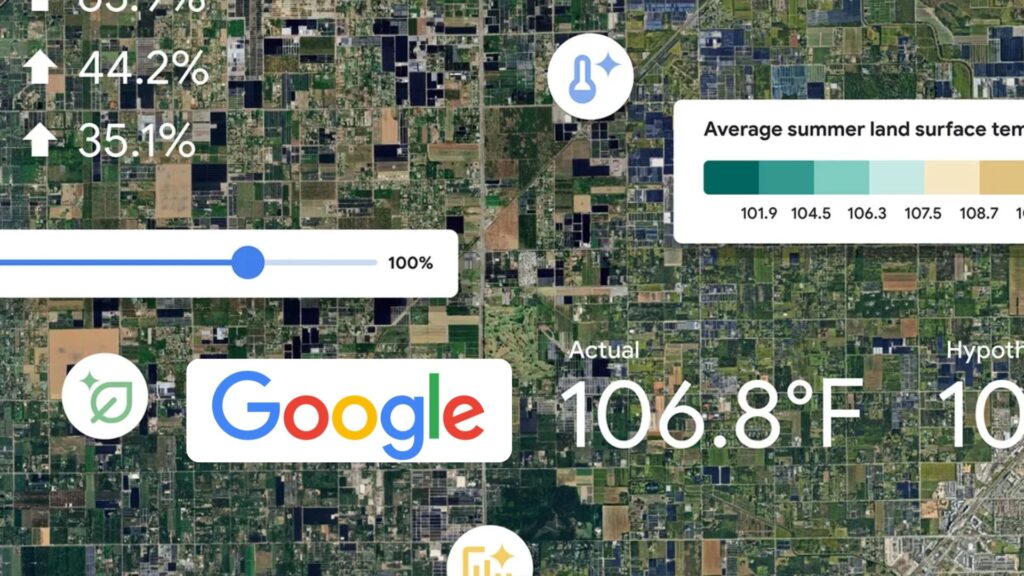Google Leverages AI to Reduce Urban Heat, Identifying Vulnerable Areas for Targeted Cooling

- AI-powered solutions: Google’s new tool uses AI to help cities lower temperatures by identifying areas most affected by extreme heat.
- Data-driven decisions: The Heat Resilience tool provides actionable insights, helping cities prioritize cooling strategies in vulnerable neighborhoods.
- Community impact: Early adoption in cities like Miami-Dade and Stockton shows potential for reducing urban heat islands and protecting at-risk populations.
Addressing the Heat Crisis
Google Research is harnessing the power of AI to tackle one of the most pressing environmental challenges: extreme urban heat. The new Heat Resilience tool, developed by Google, analyzes satellite and aerial imagery to help cities make informed decisions about reducing surface temperatures. The tool’s goal is to identify and mitigate heat islands—urban areas that absorb and re-emit heat due to dense infrastructure like roads and buildings.
The Need for Action
The urgency of this initiative is underscored by projections that 2024 could surpass 2023 as the hottest year on record. Urban heat islands are heating up at twice the global average rate, disproportionately affecting vulnerable communities. According to Google Research, heat-related mortality for people aged 65 and older increased by approximately 85% between 2017 and 2021.
“By using AI, we can identify which areas are most vulnerable to extreme heat and target interventions where they will make the biggest difference,” said a Google spokesperson.
AI-Powered Insights for Cities
Google’s Heat Resilience tool leverages AI to provide cities with precise, data-driven insights. It uses AI-powered object detection and other models to evaluate local factors such as green space availability and roof reflectivity. This detailed analysis enables cities to quantify the potential impact of various cooling interventions, like planting trees or installing cool roofs.
“We’re piloting the tool in 14 U.S. cities,” a Google representative explained. “It helps officials pinpoint which neighborhoods need the most attention and allows them to plan effective cooling strategies.”
Impact and Future Plans
Cities like Miami-Dade and Stockton have already started using the tool to develop heat mitigation policies and identify potential projects. The early results are promising: AI-informed insights are helping these cities craft impactful, targeted responses to extreme heat.
Related Article: AVPN and Google.org Fuel Climate Innovation in Asia-Pacific with $5M in Grants for Tech-Driven Solutions
Google aims to expand partnerships with more cities, hoping to aid them in developing strategies to cool down urban areas and protect their most vulnerable residents.
By integrating AI into urban planning, Google Research is not only advancing technological innovation but also contributing to the creation of safer, healthier, and more sustainable communities.












